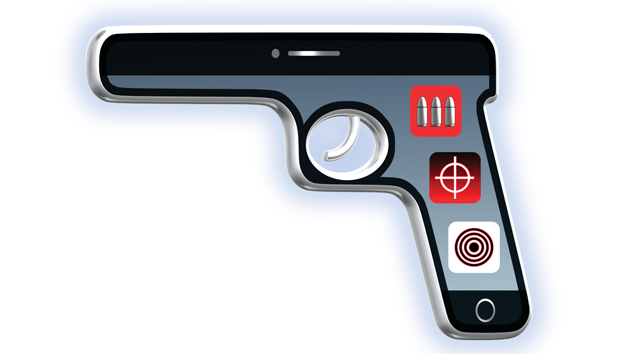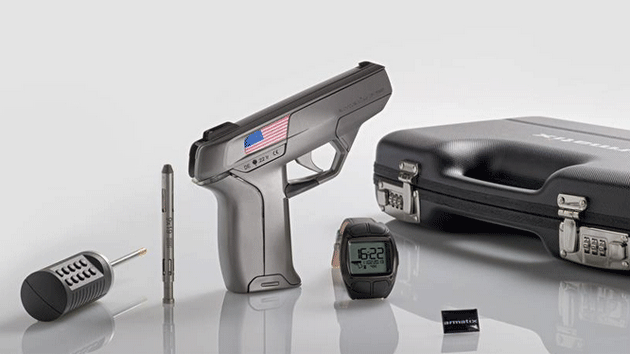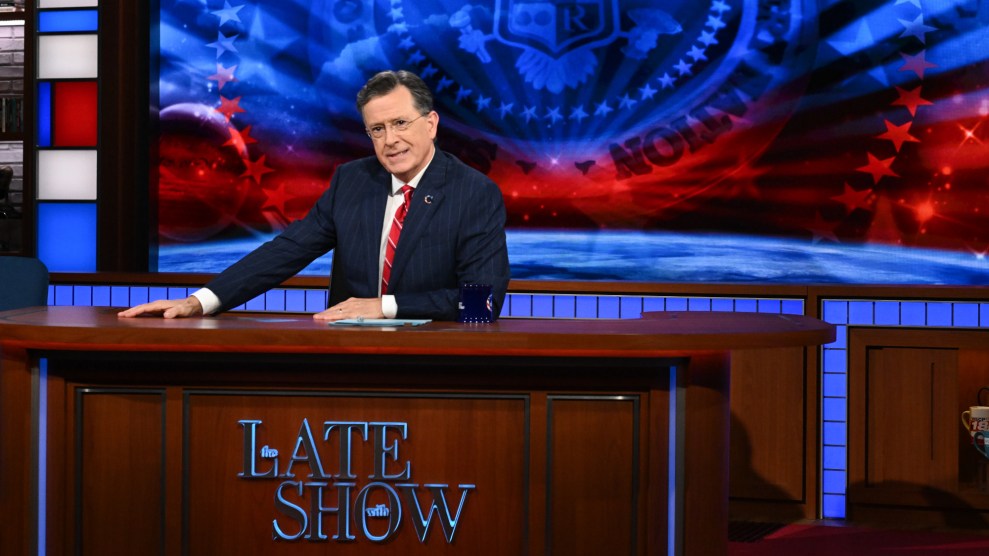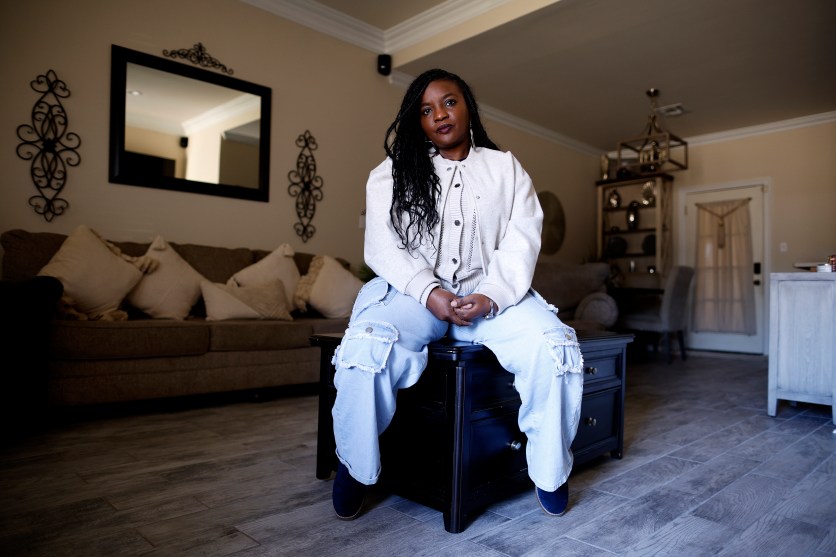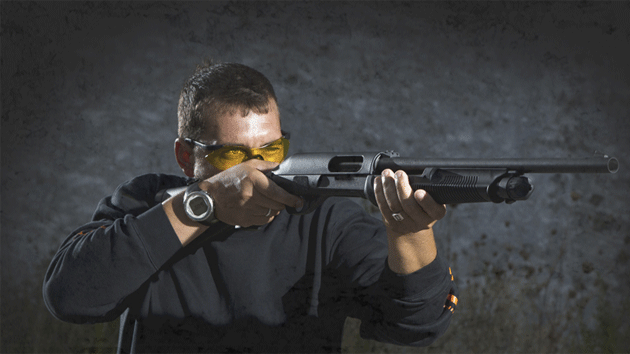
<a href="http://www.iguntechnology.com/explore/index">iGun Technology</a>
On Friday, President Barack Obama released a plan for the federal government to promote the development of smart-gun technology. The guns, also known as “personalized firearms,” employ biometric or other sensor technologies to prevent them from being fired by anyone other than their owners.
“Today, many gun injuries and deaths are the result of legal guns that were stolen, misused, or discharged accidentally,” Obama said in a Facebook post. “As long as we’ve got the technology to prevent a criminal from stealing and using your smartphone, then we should be able to prevent the wrong person from pulling a trigger on a gun.”
Obama began advocating smart guns in January, as part of his latest push to confront America’s costly gun violence crisis. He ordered the departments of Justice, Defense, and Homeland Security to develop a strategy to promote the technologies and expedite government procurement of the weapons. The report released Friday details the following initiatives:
- By October, the departments of Justice and Homeland Security will establish requirements that smart-gun manufacturers need to meet in order for their guns to be purchased by law enforcement agencies. They will also identify agencies willing to participate in a smart-gun pilot program.
- The Department of Defense will help manufacturers test smart-gun technologies at the US Army Aberdeen Test Center in Maryland. Manufacturers will be eligible to win cash prizes for successful designs.
- The Department of Justice has authorized agencies to apply certain federal grants to the purchase of smart guns.
Gun companies first pursued smart guns in the 1990s, in part at the urging of the Clinton administration. Colt, Smith & Wesson, and O.F. Mossberg & Sons developed prototypes. The products were shelved, however, when market research showed consumers didn’t trust the weapons—and after the National Rifle Association and other gun rights activists denounced the companies for a product they claimed was a Trojan horse for gun control.
The recent rise in mass shootings has helped renew interest in smart guns, including among investors in Silicon Valley. The Smart Tech Challenges Foundation, created by angel investor Ron Conway after the 2012 Newtown massacre, has handed out about $1 million in funding to gun safety startups. One grant recipient was Jonathan Mossberg, a former Mossberg & Sons VP and the developer of the iGun, a shotgun that will only fire if the shooter is wearing a special ring. Mossberg, who is working on miniaturizing his technology for handguns, told me by phone on Friday that Obama’s efforts could “raise a whole lot of interest and give people a sense of this market.”
By one estimate, smart guns may be a $1 billion slice of the industry. The White House initiative could help create more opportunity in the major market for supplying law enforcement agencies. Mossberg and a handful of other smart-gun developers have long been trying to get police departments interested in their weapons; an estimated 5 to 10 percent of police deaths occur when officers’ own firearms are used against them. Some law enforcement leaders have shown support for adopting the technology, including San Francisco Police Chief Greg Suhr.
But strong opposition continues: The NRA remains sharply critical of Obama’s policy, which suggests the gun industry is likely to follow suit and ignore efforts on the technology. The Fraternal Order of Police, a national interest group representing the rank and file, is also signaling skepticism. “Police officers in general, federal officers in particular, shouldn’t be asked to be guinea pigs in evaluating a firearm nobody’s even seen yet,” FOP Director James Pasco told Politico. “We have some very, very serious questions.” (Politico failed to note that a charity run by the FOP has received at least $125,000 since 2010 from another conservative gun lobbying group, the National Shooting Sports Foundation.)
Obama on Friday also announced several other gun safety initiatives, including a proposed rule requiring the Social Security Administration to better report mental-illness information to the federal background check system, and a gun violence prevention conference to be hosted by the White House in May.

